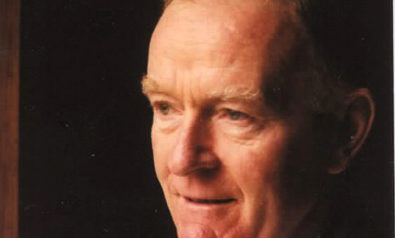An article by Milwida M. Guevara published in the Philippines Daily Bulletin on 12 December 2017.
I tried to focus on the celebration of the mass yesterday but my memory kept drifting to the past. My friend, Fr Michael Mohally, a Columban priest, celebrated his 50th anniversary as a priest. His years were indeed golden, having served as a missionary, and dedicated to the formation of leaders through Student Catholic Action (SCA).
The Columban Missionaries are also celebrating their centenary in the country this year. They ran parishes, established schools, served as university chaplains, and worked with the poor. Many Columbans died as martyrs in the Philippines. Fr Thomas Flynn died in the hands of the Huks in 1950. Fr Rufus Halley was shot dead in 2001. President FVR was personally involved in the rescue of Fr Des Hartford who was abducted by militants in Marawi in 1997.
But we remember the Columbans most fondly for their work with students. They had a special knack for identifying those with great potential for leadership and held their hands and hearts in their formative years. The Columbans modelled the virtues of servant-leadership, sharpened their minds through “teach-ins” and conferences, and developed their love for others through immersion in marginalized communities. I am privileged to walk in the company of colleagues whose values and work were shaped by the Columban Fathers: Ernie Garilao, former Secretary of DAR; Carn Abella, former President of DAP; Dr Antonio Torralba, former Dean of Liberal Arts, UAAP; Atty. Hector Villacorta, Secretary of the Commission on Appointments; Tess Villacorta, former Executive Director of Children’s Hour; Tina Monzon Palma, ANC Anchor, Edna Zapanta Manlapaz, Professor, Ateneo de Manila University, and of course, the great Raul Roco. We were products of “indoctrination” of the Columbans on how to live a meaningful life through service to others.
SCA was introduced in campuses at a time when students were drawn to the ideals of Communism. The Columbans adopted the cell technique in formation. It is interesting to note that the ideals of Communism were propagated through the cell method. We met regularly with a group of students where we discussed how it is to be a leader, the meaning of love, and how virtues such as humility and courage, are acquired. But our discussions were rooted not on the teachings of Lenin and Trotsky, but on the examples of a much bigger leader, Jesus. We reflected on His Gospel and His life of love. It was in these cell meetings where I first listened to Raul Roco, dapper, dashing, and eloquent in flawless English and Tagalog. Every December, the Columbans gathered student leaders in every school, college and university, and “indoctrinated” them in Baguio – La Patria Hotel for the men and St. Joseph College, for the women. Coming straight from the province, you could imagine how I listened with starry eyes to Sonia Malasarte, Nonong Contreras, Tati Licuanan, Pablo Trillana, Fr. Sonny Ramirez, Imelda Nicolas, and Abelardo Cortez.
The Columbans also saw to it that student-leadership should be well-rounded. We had festivals throughout the year where we developed our talents in drama, debates, singing, dancing, arts, and sports. Those were the years when SCA sponsored college fairs where we had great fun in marriage booths, roulettes, merry-go-round, and ferris wheels. In the evenings, we swayed and boogied with the music of RJ Jacinto and the Electromaniacs.
The Columbans helped us to have a deep understanding of life. They led us in our work with communities in the peripheries. I credit my work with the public high schools and the slums in Tondo as the backbone of my obsession for justice and education. It is not strange that many of my SCA colleagues have a penchant for public service and have continued to work with the poor.
I met Fr. Michael 47 years ago. He had an innocent look on his face and was looking forward to his work in the Philippines. Little did he know that he would serve as the Director of SCA in public high schools for many years, sans any priest as assistant. He was forever running around all day in his small car saying masses all over Metro Manila, counselling hundreds of students, and guiding their activities. His heart broke (and so did ours) when SCA was outlawed by the martial law government.
But the Columbans probably will never realize how much their work with SCA has impacted on Filipinos. Their influence has multiplied a million-fold through the work of former student leaders whom they have formed. Like ripples in a pond, the ideals of the Columbans have multiplied and changed the course of rivers and oceans. They have set the course for thousands of SCAns to do what is right, give without counting the cost, and work without seeking reward.
Thank you, Fr. Michael, and the Columban missionaries who have given their best to the country. Indeed, you made us hear the angels sing.

